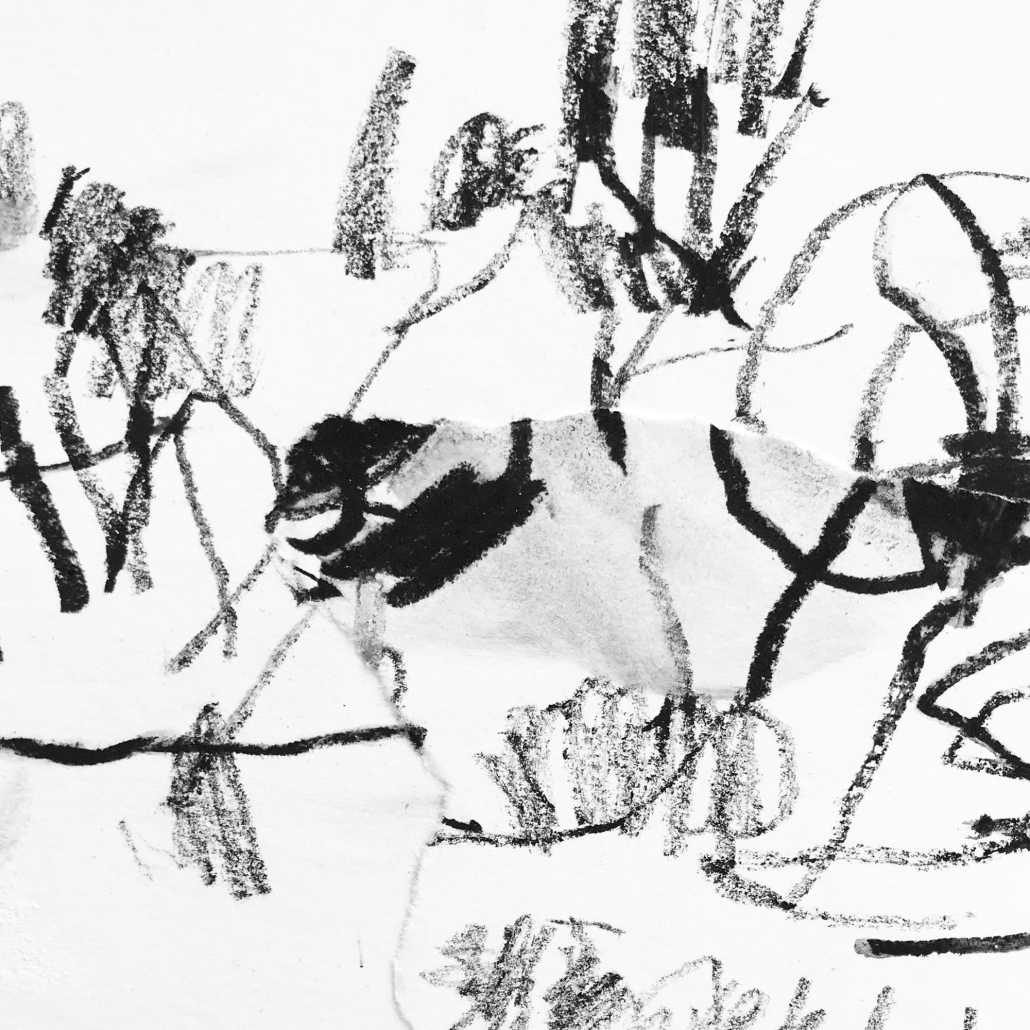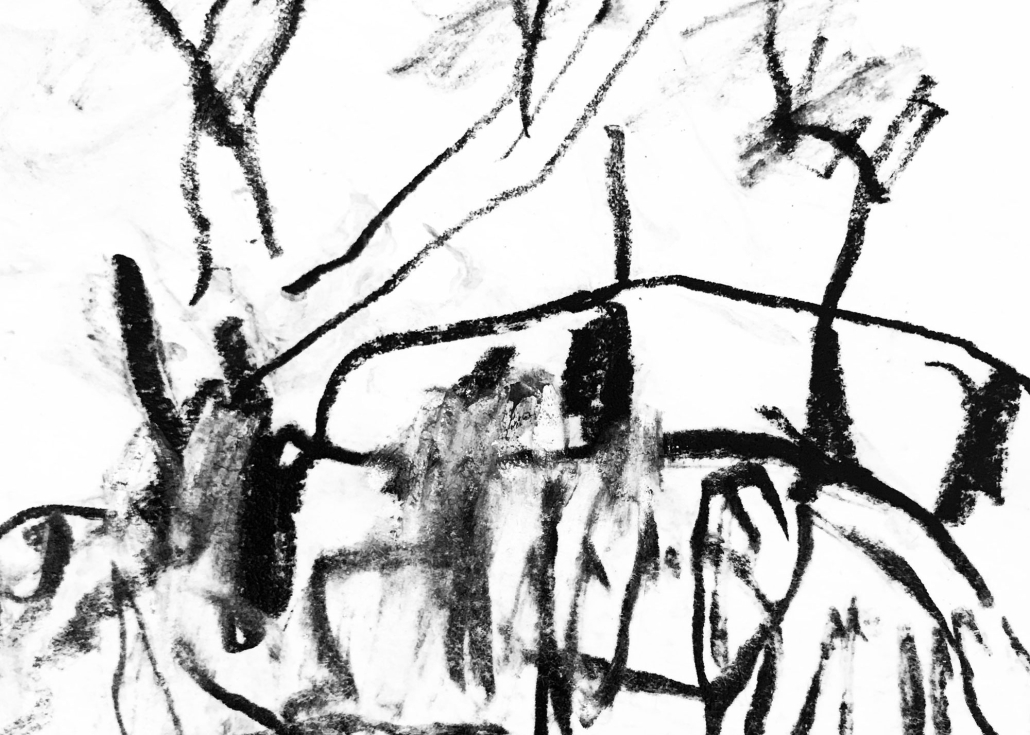Image: Andrew Collis, Sepulchre Island, St George’s Basin, 2019.
‘Fishing for art and wisdom’
Andrew Collis
Epiphany 5, Year C
Isaiah 6:1-13; Psalm 138; 1 Corinthians 15:1-11; Luke 5:1-11
For five consecutive days I paddled out into deeper water, out to Sepulchre Island. I paddled out at 5pm and returned by 8pm – in the glow of a setting sun, with the mullet jumping, the ducks, pelicans and peewees making their own sounds and signs – making it back one evening just as a mighty storm brought big winds and waves, brought down branches and leaves – with more drawings than I’d ever made in my life. I was very happy.
In a happy place – in this tension between resting and working, going out and coming back, the strange and the familiar.
I used to go fishing with my father and my grandfather … Called to move, go, look, see, wait, work, look again (re-spect). Called to seek connection, commit, care, enjoy. My wise drawing teacher Pam says to smile when you draw, it makes a difference. She also says that once you begin drawing, even when you are asleep your mind continues to draw, to practise, to rehearse, to imagine the alignment of eye, hand, heart and world.
I was fishing for art and wisdom, and of course, captured – captivated … by beauty, water, fish and weed, the love of my father, my grandfather, the Spirit of the Wodi Wodi people, the goodness of every effort to keep the Basin clean, to protect the animal and birdlife (from toxic chemicals and plastic).
The phrase “catching people alive” conveys the sense of a Greek word – zogrein – that Luke has used quite deliberately (repeating with a difference a story recorded in Mark and Matthew). When people catch fish, whether for livelihood or for leisure, the fish necessarily end up dead. Luke seems to be sensitive to this negative implication in the fishing image.
So, in moving from the everyday Galilean sense of “fishing” to the symbolic sense that applies to mission (art and wisdom), he employs this special term – one used in connection with the catching of wild animals not for killing but for keeping in some protected way, like netting fish for an aquarium or fishpond, like tagging endangered species.
The Greek word resonates with the sense of “life” (zoe). The call communicates the sense of “capturing” or “captivating” by way of a godly word, and inviting a more abundant life – the experience of creation as a heavenly kindom.
All of which presumes some kind of epiphany – an experience of the holy in the person of Jesus (who embodies compassion/forgiveness: “Don’t be afraid…”). One commentator writes: “Only those who have plumbed their personal fragility in the context of God’s generosity [see Isaiah, Paul, Simon] are apt for leadership in the community that celebrates the hospitality of God” (Brendan Byrne SJ).
I can let myself go. I can hear the words of mercy and then the call to become with Christ a bearer of the same love and mercy to others. This can be a transforming moment.
I recall the words of the second-century bishop, St Irenaeus of Lyons: “The glory of God is the human person fully alive.” In light of the gospel, in keeping with its lively fish tales, we keep faith with a living word: The glory of God is the living person in relationship, the life-giving community. The living, flourishing eco-system – the river flowing, the Basin teeming with life – is the glory of God … Amen.





